Do Androids Dream of Electric Sheep? by Philip K. Dick
This Philip K. Dick novel, which is the inspiration for the movie Blade Runner, is a fast paced read into a possible future Earth. Androids to be used as personal servants are offered as incentives for humans to immigrate from an almost defunct Earth. The one problem to that plan is these androids aren’t unthinking robots of days past. They have some capacity for thought and are escaping their human bondage on Mars and in other human outposts. Whether that thought was a direct byproduct of the engineering or something more mysterious is of little consequence. What is important is that if they make it to Earth, they must be destroyed. That’s were Rick Deckard comes in.
I had the perspective of being a fan of the movie Blade Runner, so I didn’t come at the book with completely fresh eyes. However if you don’t judge a book by its cover, you shouldn’t judge a book by its movie either. While there are some aspects of the movie that take directly from the book, the book really is different, in a very compelling way. There’s still the gritty dirty feel, and Earth is populated by undesirables, also known as chickenheads, or people who didn’t want to leave. Then there are people like Rick Deckard who have a job to do, retiring androids (or replicants in the movie).
Let’s leave the movie behind and focus on the interesting and thought provoking aspects of the book. In Do Androids we are introduced to a device called the mood organ, which can be dialed into moods ranging from satisfaction at work to a sense of well being to depression (which is supposed to be eliminated by the mood organ) to desiring to continue dialing in emotions. Moods can be scheduled throughout the day, and Iran, Rick Deckard’s wife, schedules herself a depression so that she can hear the silence in the apartment building and gain perspective on their existence. Moods no longer exist at the spontaneous level that we mere mortals experience, but rather however we decide to schedule them. We could even dial them in to pick fights with people!
Another interesting aspect of the book was the inclusion of a religion and its counterpoint. On Earth the religion Mercerism is wide spread. Its followers connect to other followers and to Mercer by holding onto handles of an empathy box. Here they experience walking up a hill as one, and occasionally have rocks thrown at them. Bodily injuries received during these connected experiences truly manifest themselves in real life. Mercerism is based on the life an rebirth archetype in religion. When a follower finally makes it to the top of the hill he is brought down by “the killers” and sent to an afterlife, where he then must rise and start climbing the hill again.
Owning animals is valued above all things as well as unity and shared experience. In fact for a large part of the book Rick deals with owning an electric sheep because he had to replace his live one which died of tetanus. Not owning an animal, where most animals are extinct, is possibly one of the biggest social faux paux imaginable. There is a market for electric animals that look and feel just like real animals, and there are even “hospitals” to “heal” the wounded and sick among the fakes. Every person has their own copy of a manual quoting facts on animals including their current market value and whether or not there are any available for sale.
Then of course, there are the androids. The hierarchy of value goes: animals, humans, and then androids (and somewhere around androids the “chickenheads” or folks who have been affected mentally by the radioactive fallout), from highest to lowest. Androids cannot experience empathy, and they actively try to debunk Mercerism which is experienced through the empathy box. They escape their human captors to go to Earth where they hope to find refuge. Their makers try to make each generation harder and harder to differentiate from humans. If they know they are enslaved and they revolt, how different are they? Can a human possibly have empathy for a machine? That’s the battle Rick Deckard deals with, and he’s in a tough spot since he is their bounty hunter.
This book explores the ethics of human form artificial intelligence and asks when does a machine stop being a machine, or can it stop at all? Discrimination, religion, and what makes a human a human are all topics of debate in this book. When humans use a machine to regulate their emotions, are they human? Or when an android realizes it shouldn’t have to work in conditions that no human would, is it still just a machine? If you have not read this book yet, you should, and then decide for yourself.
“Dial 888…The desire to watch TV, no matter what’s on it.”


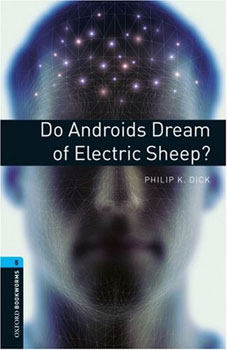
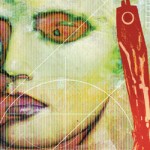

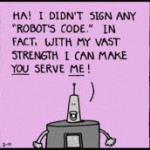
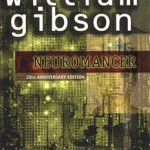
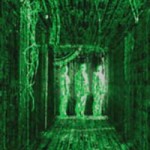
Pingback: Do Androids Dream of Electric Sheep? - Review « That’s the Book!